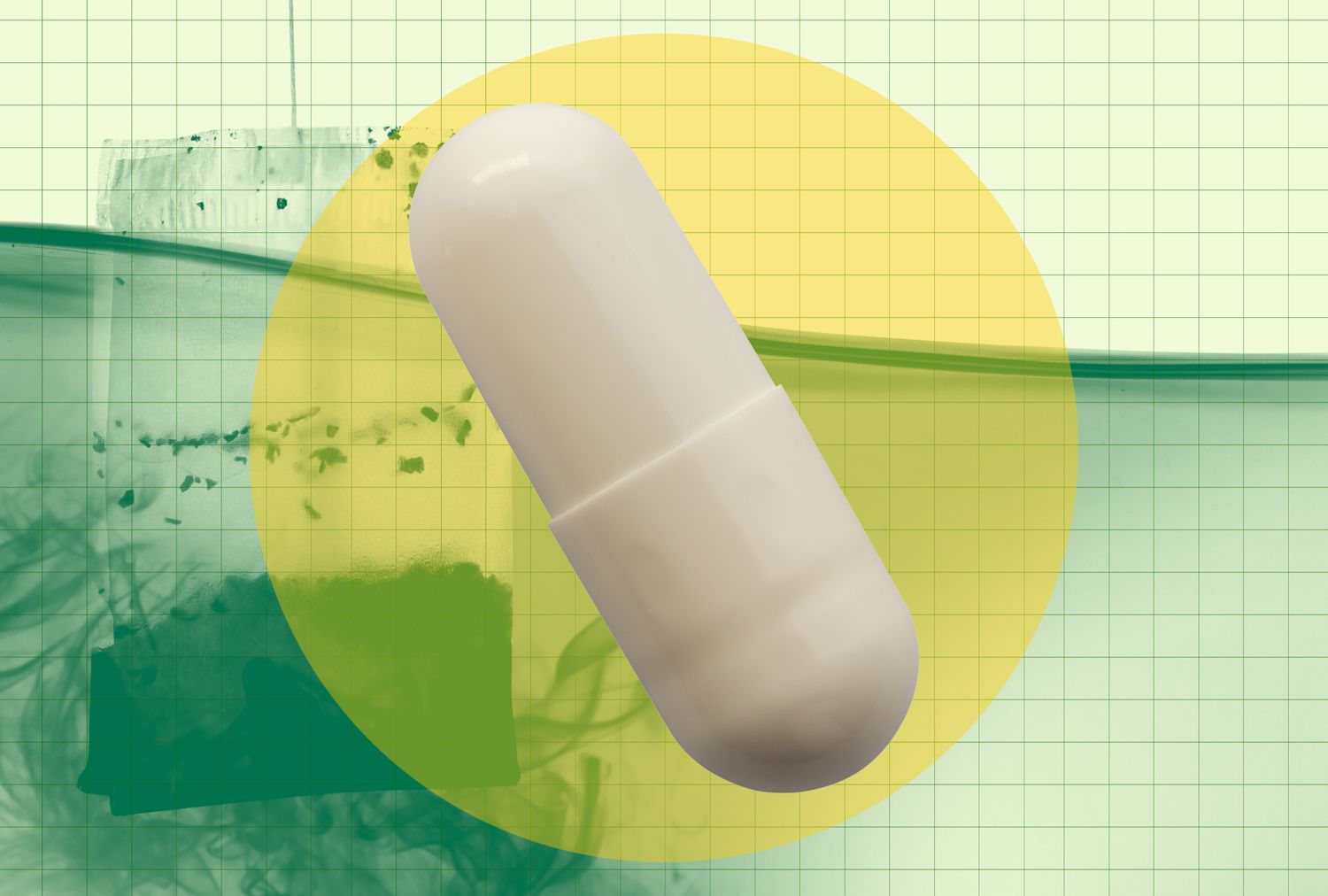- Green tea is a nutritious beverage rich in polyphenols that support overall health.
- It contains natural compounds such as catechins and caffeine, which may interact with certain supplements.
- To be safe, drink green tea separately from supplements containing iron, caffeine, B vitamins or blood-thinning ingredients.
Green tea is a beloved beverage around the world—and for good reason. It’s rich in catechin polyphenols, especially epigallocatechin gallate (EGCG), a powerful antioxidant linked to numerous health benefits. From supporting heart health to aiding in weight management, green tea’s benefits are impressive.,
But there’s a catch: the same compounds that make green tea so beneficial can also interfere with how well your body absorbs and metabolizes medication and supplements, warns Rebecca Emch, Pharm.D. Considering that 58% of U.S. adults regularly use supplements, it’s worth knowing which combinations to look out for. Keep reading to learn which supplements may not mix well with your daily cup of green tea.
1. Iron Supplements
Iron deficiency is a common health concern, particularly among women, vegetarians or vegans, older adults and those with malabsorption conditions. For this reason, your health care provider may recommend an iron supplement or prenatal multivitamin, which typically contains higher amounts of iron.
However, research suggests that green tea interferes with iron absorption—espeically non-heme iron, the form found in plant-based foods that’s already poorly absorbed by the body. This is largely due to compounds found in green tea such as tannins, phytates, calcium and certain polyphenols. One study found that those who drank more than one cup of green tea per day had lower iron stores, with the effect being the most pronounced in premenopausal women.
If you take an iron-containing supplement, it’s best to wait one to two hours before or after drinking green tea to help ensure maximal absorption.
2. Stimulant-Based Supplements
Green tea naturally contains caffeine, providing around 30 milligrams per cup. Though that’s lower than what you’d find in coffee or an energy drink, it can still add up—especially if you’re also taking caffeine-containing supplements like pre-workout, caffeine pills or weight-loss products. “The combination of green tea with stimulants leads to fast heart rates, high blood pressure and nervous system agitation and anxiety symptoms,” says Emch.
In addition to caffeine, green tea also contains theophylline and theobromine, mild central nervous system stimulants that can further enhance its stimulating effects.
To stay on the safe side, try to space out your green tea and caffeine supplements. Also, keep an eye on your total daily caffeine intake to avoid exceeding safe limits.
3. B Vitamins
Green tea may interfere with the absorption of certain B vitamins, especially folic acid and vitamin B12, due to its caffeine and polyphenol content. In particular, the catechins in green tea may reduce the body’s ability to convert folic acid—the supplemental form of the vitamin—into its biologically active form.
That said, the research on green tea’s impact is still limited. These effects are more likely in individuals who already have B vitamin deficiencies and consume large amounts of green tea.
As a precaution, it still may be wise to take your B vitamin supplement at a different time than your green tea to support optimal absorption.
4. Blood-Thinning Supplements
It’s well-established that blood thinners like warfarin interact with vitamin K. But some dietary supplements can also have blood-thinning effects, such as fish oil, ginkgo biloba, garlic, dong quai, ginseng and even green tea supplements.,,
Green tea itself contains modest amounts of vitamin K, which may counteract the effects of blood-thinning medications and supplements when consumed in large amounts, explains Emch. Though the overall risk is low, individuals taking anticoagulants should consult their pharmacist or other health care provider—especially if they drink green tea regularly or take concentrated green tea extracts.
Potential Risks of Green Tea and Supplement Interactions
Knowledge is power—and being informed helps you have more productive conversations with your health care team. “It’s really important to work with a pharmacist and your registered dietitian nutritionist on potential drug-nutrient interactions. Drinking green tea may be different than supplementing with, say, green tea extract, so getting a clear answer on what’s safe for you and your unique needs is important,” says Ginger Hultin, D.C.N., RDN, CSO.
Emch agrees, emphasizing that even “natural” doesn’t necessarily mean harmless. “The primary concern is that green tea creates two types of interactions, which either boost or decrease drug [or supplement] effectiveness.”
With these insights in mind, it’s best to check with your health care provider about any potential interactions between green tea and your supplements or medications before making it a part of your daily routine.
Our Expert Take
Green tea has many health benefits—but it can also interact with certain supplements, potentially reducing their effectiveness or increasing the risk of side effects. In most cases, simply spacing out when you drink green tea and when you take your supplements can minimize these interactions. For personalized guidance, it’s always best to consult your health care provider to ensure your supplement routine pairs safely with your daily cup of tea.
